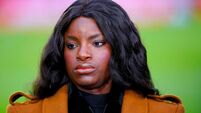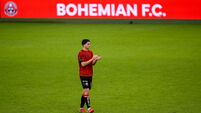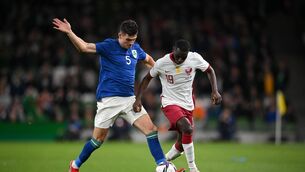Dark cloud of racism still hangs over sport
Laudable efforts may have been made to kick racism out of football but as the monkey chants boomed around the Bernabeu in Madrid on Wednesday night, the message could not have been more sickeningly clear - it hasn’t gone away, you know.
Viewed purely as a football match, Spain’s 1-0 victory over England in a supposed friendly could have kept the back pages fully occupied with a post-mortem that would have been grisly enough in itself.














